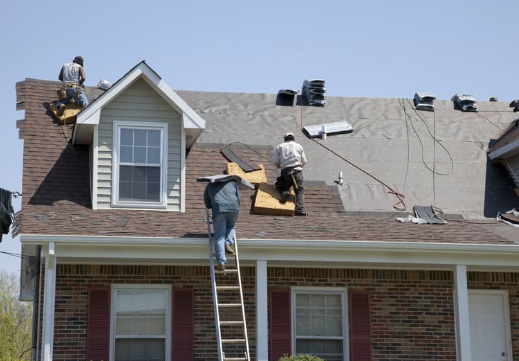Everything You Need to Know About Residential Roofing: Materials, Costs, and Maintenance
by siteadmin

Your roof is more than just a protective covering for your home; it’s a crucial component that plays a significant role in its overall aesthetics, durability, and value. Whether you’re building a new home or considering a roof replacement, understanding the various aspects of residential roofing is essential. In this comprehensive guide, we’ll delve into everything you need to know about residential roofing, including materials, costs, and maintenance.
Roofing Materials:
a. Asphalt Shingles: Asphalt shingles are the most common roofing material, known for their affordability, durability, and versatility. They come in a wide range of colors and styles, making them suitable for various architectural designs.
b. Metal Roofing: Metal roofs offer exceptional durability, longevity, and energy efficiency. They are resistant to fire, wind, and mildew, making them an excellent choice for homeowners seeking a long-term roofing solution.
c. Wood Shingles and Shakes: Wood shingles and shakes add a rustic charm to residential properties. While they require more maintenance than other materials, they offer natural insulation and aesthetic appeal.
d. Slate and Tile: Slate and tile roofs are renowned for their beauty, durability, and longevity. They are resistant to fire, rot, and insect damage, making them a premium choice for upscale homes.
Cost Considerations:
The cost of residential roofing varies depending on several factors, including the type of material, roof size, slope, and complexity of installation. Asphalt shingles are the most affordable option, with metal roofing typically costing more upfront but offering long-term savings due to its durability and energy efficiency. Wood, slate, and tile roofs are considered premium options and come with higher installation costs.
Roof Maintenance:
Regular roof maintenance is essential for preserving its integrity and prolonging its lifespan. Some key maintenance tasks include:
a. Regular Inspections: Schedule annual roof inspections to identify and address any issues promptly.
b. Gutter Cleaning: Clean gutters and downspouts regularly to prevent water damage and debris buildup.
c. Trimming Overhanging Branches: Trim branches that overhang your roof to prevent damage and debris accumulation.
d. Repairing Damaged Shingles: Replace damaged or missing shingles as soon as possible to prevent leaks and further damage.
Residential roofing, as highlighted in the Essential Guide to Residential Roofing, is a significant investment that requires careful consideration of materials, costs, and maintenance. Whether you’re building a new home or replacing an existing roof, understanding the various options available and their respective pros and cons is crucial. By choosing the right roofing material, considering cost factors, and prioritizing regular maintenance, you can ensure the long-term durability, functionality, and aesthetics of your home’s roof.
Your roof is more than just a protective covering for your home; it’s a crucial component that plays a significant role in its overall aesthetics, durability, and value. Whether you’re building a new home or considering a roof replacement, understanding the various aspects of residential roofing is essential. In this comprehensive guide, we’ll delve into…
Recent Posts
- Hiring Roofing Contractors Corpus Christi, Texas
- Roofing Company Savannah Sheds Light on the Lifespan of Roofs: How Long Should a Roof Last?
- Choosing the Best Gutters for Your Jacksonville FL Home
- Choosing the Best Gutters for Your Chicago Home
- Exploring the Drawbacks of Duct Cleaning: Insights from Air Vent Cleaning Charlotte
